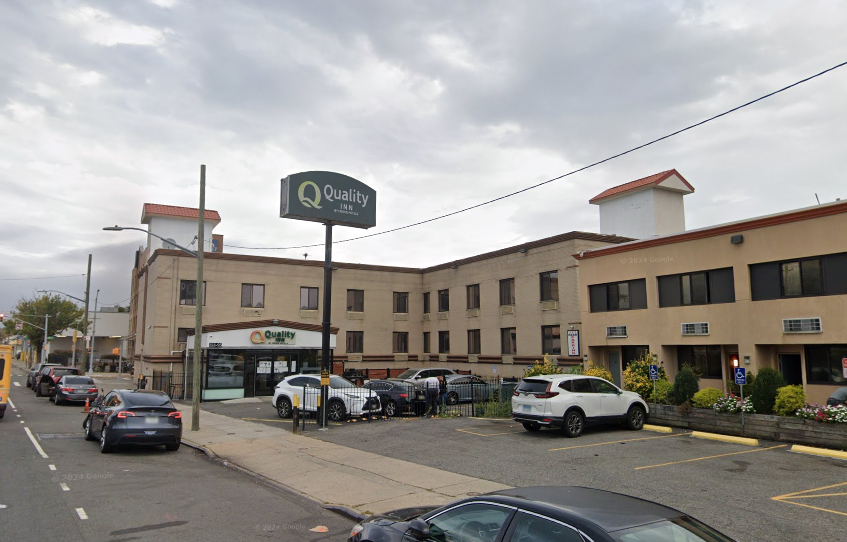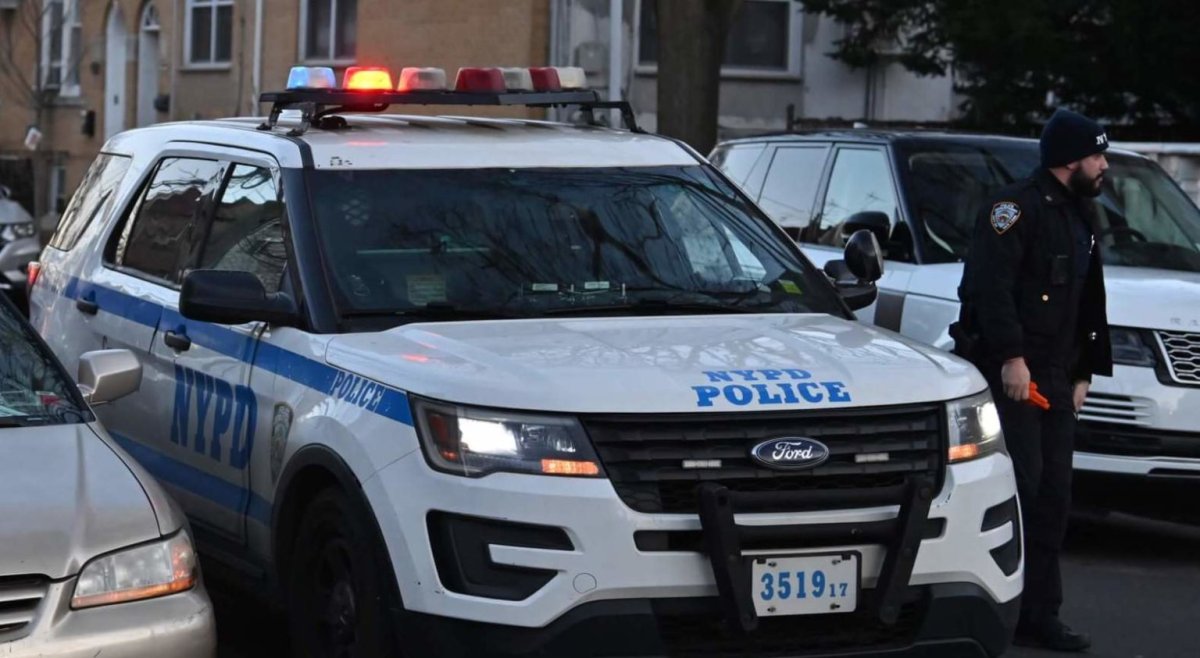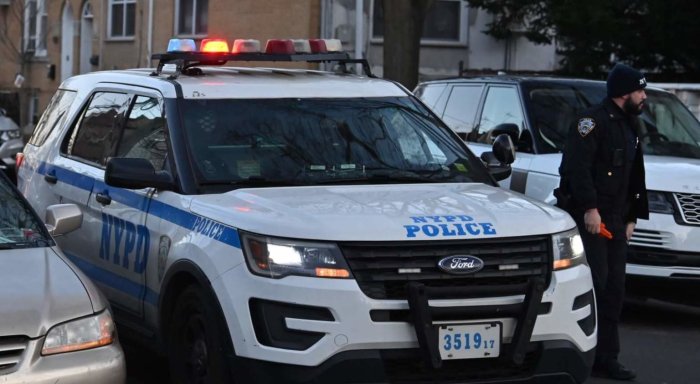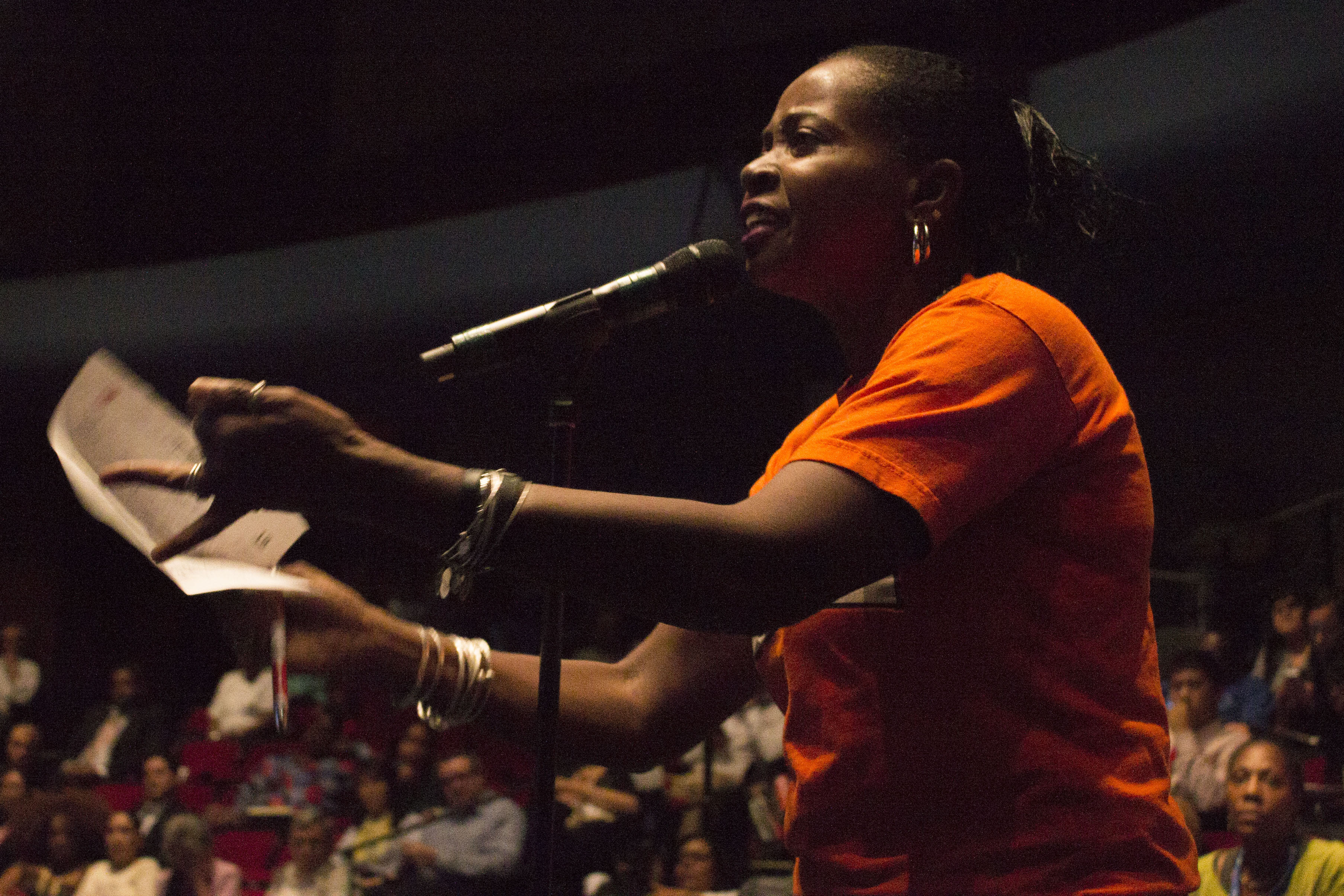
BY ZACH WILLIAMS | At an August 11 public hearing held at Pace University, public housing residents reiterated their concerns that the New York City Housing Authority (NYCHA) might jeopardize the future of low-income housing as it responds to an ongoing fiscal crisis.
NYCHA assert that developing partnerships with private enterprises, increasing parking fees, and new building construction — some with market rate housing — will help the housing authority move from the brink of financial oblivion to a $230 million budgetary surplus over the next decade. Residents, however, expressed a multitude of concerns regarding the authority’s draft of its 2016 Annual Plan.
The notion that open space outside of housing developments could become new buildings particularly irked speakers at the hearing.
“I thought NYCHA was developed for the poorest, for the low-income residents. But all I hear is about how y’all want to bring more affluent people to close your deficit,” said Kevin Singley, a resident of Castle Hill Houses in the Bronx.
Most of the approximately 30 speakers called on NYCHA to offer more transparency and reaffirm its commitment to meeting the needs of residents while confronting a projected $2.5 billion operating deficit over the next 10 years.
About 150 NYCHA residents attended the meeting. Members of Community Voices Heard — a housing advocacy group based on E. 106th St. — and congregants of Brooklyn’s Church of the Open Door had numerous representatives at the meeting. The seven-person panel included two NYCHA leaders, four board members and the chief of the NYPD’s housing bureau. They listened to public comments for two and a half hours, but did not respond to questions. There were plenty of empty seats within the venue. Some attendees said that they did not hear about the meeting until a few hours before its 5:30 p.m. start time.
Speakers at the event were primarily from Harlem or the outer boroughs, with no residents of West Side developments providing comment to the panel. But other NYCHA residents spoke to lingering problems which are not foreign to residents of Elliott-Chelsea Houses (btw. W. 25th & 27th Sts., and 9th & 10th Aves.) and Fulton Houses (btw. W. 16th & 18th Sts., and 9th & 10th Aves.).
Mold remains rampant in developments, wait times for apartment repairs are too long, and the authority has not met its stated commitment to hire residents nor provided promised job and leadership training to tenants, according to NYCHA residents. Crime is a problem at many of NYCHA’s more than 300 housing developments, according to several speakers.
Some, meanwhile, accused the housing authority of merely paying lip service to residents who raise concerns. Complaints to that effect concerned people throughout the NYCHA chain of command, with one speaker directly confronting NYCHA General Manager Michael Kelly on that point.
Jaqueline Young, a resident of Lenox Road-Rockaway Parkway houses in Brooklyn, said that a new tenant association there wished to use an empty office space, but could not secure the necessary permission from at least two other NYCHA officials. Young said she met Kelly at a town hall meeting last month. An assistant to Kelly later said (in a mid-July email) that her concerns would receive attention, but there has not been any response to her inquiry since then, Young said. The lack of support for the new tenant association aroused her suspicions regarding NYCHA plans for “scattered site” developments, she added.
“Is Lenox Road houses going to be sold and managed by someone else? No one has answered that question. Is that the reason that no one has let us know whether we can use that office?” asked Young.
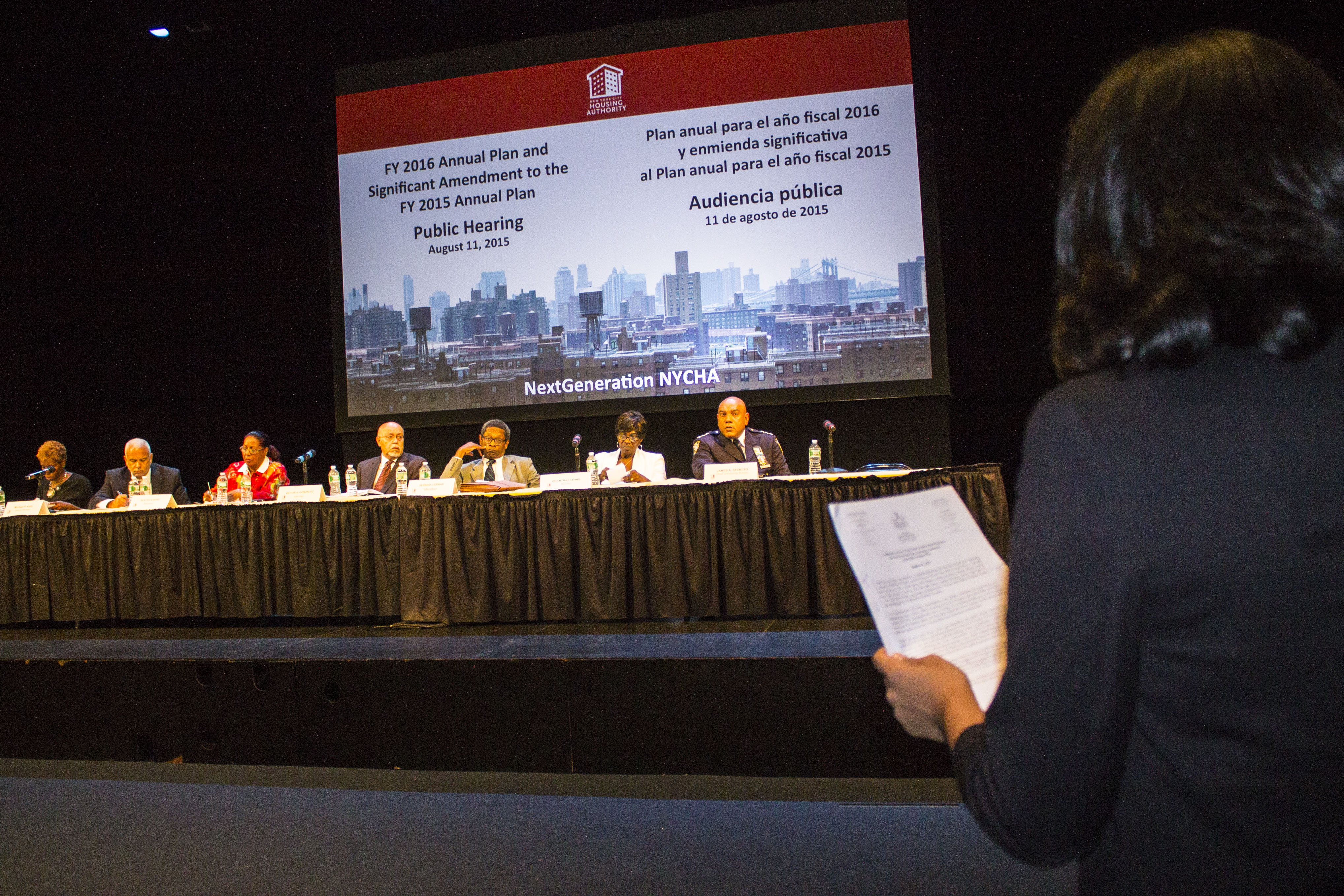
State Senator Brad Hoylman echoed such concerns about scattered sites — which are mostly old residential buildings abandoned by their owners decades ago, and then converted to public housing. He said, through a statement read by legislative aide Sejal Singh, that the authority’s plan to improve its finances and services — NextGeneration NYCHA — must preserve rather than unduly privatize public housing.
“[NYCHA] calls for scattered-site developments to be sold to nonprofits and for distressed Towers-in-the-Park style developments to be converted to new ownership structures…which converts public housing subsidies to long-term guarantees and in turn facilitates an influx of private capital,” reads the statement.
Borough President Gale Brewer — the only elected representative of Chelsea who personally attended the meeting — told the panel that trusting nonprofits with the ownership of land on which public housing resides could risk their future, because “nonprofits sell land” in the lucrative Manhattan real estate market.
“I am also here to acknowledge the many challenges that NYCHA residents are facing, such as dilapidated conditions, broken facilities, diminished public safety due to rampant drug and gang activity, lack of clear communication from management, and concerns over what will happen to them with all the recent talks about NextGeneration and privatization,” Brewer said.
NYCHA Chair and Chief Executive Officer Shola Olatoye said in remarks preceding public comment that the process of determining the future management of the authority remains ongoing. Although the public hearing was not a forum for direct discussion, she added that the authority will continue to reach out to its tenants as the city continues implementing NextGeneration NYCHA.
The status quo cannot continue considering the current fiscal challenges, but opportunities also present themselves at the same time, according to Olatoye.
“We are excited about [NextGeneration NYCHA]. It is not a kitchen sink plan. It is a plan with very specific strategies about how to ensure that the 178,000 units that comprise the homes of more than 400,000 New Yorkers are here for another generation,” she said.



